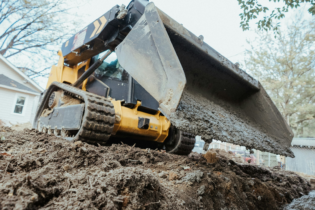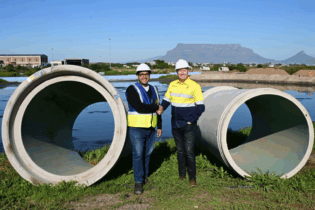After using the ‘bush system’ as a toilet for 50 years, headman Phillip Mpala of Tsholotsho is now hopeful that he and hundreds of his subjects will soon, for the first time, have proper sanitary facilities courtesy of a recently launched US$50 million rural water and sanitation project.
Mpala said of the 85 homesteads in his Siyaphambili village, only one household had a toilet, with some children living in the area even ignorant of how a lavatory looks like. “Those who go to school are better because they use toilets at school and revert back to the bush when they come back home,” he said.Mpala said lack of information and resources saw many villagers failing to construct toilets. “The only villager with a toilet works in South Africa. So he probably is now used to a toilet and had resources to build one for his family,” he said. “About 20 others use pit latrines but the rest of us use the bush.” Mpala blamed the almost non-existence of toilets in the area to government’s failure to provide resources and to educate villagers on the need for proper sanitation. “We have always wished to have toilets and practise cleanliness like others,” he said. “Most villagers cannot afford the US$27 annual tuition fees for each of their school-going children. So committing resources to toilets is not a priority.” Another villager, David Ncube said, “Health workers at the local clinic do teach us about good hygiene practices like hand-washing after using the toilet, safe disposal of garbage and the importance of drinking clean water. But we do not have the toilets or the clean water.” Villagers also said the cholera outbreak of 2008/9 also made them realise the risk of using the bush system and welcomed government’s recently launched US$50 million rural water, sanitation and hygiene (WASH) programme to benefit drought prone areas, including Tsholotsho.
The programme is aimed at the rehabilitation of 30 piped water schemes in 30 districts and construction of 15 000 latrines for the most vulnerable in 10 000 communities. A total of 15 000 latrines at 1 150 primary and 350 secondary rural schools would also be constructed under the project. At least 7 400 broken down boreholes were also earmarked for rehabilitation, while 1 500 new ones would be constructed.
Government, in partnership with non-governmental organisations like Mvuramanzi Trust and donor organisations like the Unicef have in the past assisted villagers in the construction of toilets in areas such as Plumtree and Binga. “We want to create demand for safe sanitation,” Unicef Sanitation and Hygiene Promotion Officer Stewart Nyamuranga said. “We will discuss with communities about their sanitation coverage and problems and educate them on how best to achieve safer conditions using resources they can afford.” Source: allAfrica.com






